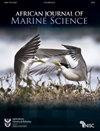肯尼亚海洋研究、保护和管理机构和组织中的性别平等状况
IF 1.4
4区 生物学
Q3 MARINE & FRESHWATER BIOLOGY
引用次数: 0
摘要
性别平等是实现联合国海洋科学促进可持续发展十年目标的关键。在父权社会中,男性的主导地位长期以来掩盖了女性在包括海洋科学在内的科学相关领域的参与。由于海洋科学中缺乏按性别分列的数据,因此很难确定各机构和各级的性别偏见程度。提供基线数据有助于解决妇女在管理沿海和海洋资源方面难以获得就业机会的问题。这项研究的目的是通过提出一个关于肯尼亚研究机构海洋科学专业人员性别比例的案例研究,填补肯尼亚海洋科学性别数据的空白。关于工作人员性别构成的数据是从设在肯尼亚的一系列地方到国际海洋研究、养护和管理组织收集的。结果显示,政府机构中的女性代表少于非政府组织(ngo)和政府间组织(igo)。妇女担任高级职位的人数也不足,政府机构的九名主任中只有两名是妇女。大多数妇女担任初级职位。需要通过深入访谈进行进一步研究,以确定在代表性和职业发展方面存在差异的原因。本文章由计算机程序翻译,如有差异,请以英文原文为准。
Status of gender equality in ocean research, conservation and management institutions and organisations in Kenya
Gender equality is key to achieving the objectives of the United Nation’s Decade of Ocean Science for Sustainable Development. In patriarchal societies, men’s dominance has long overshadowed women’s participation in science-related fields, including ocean science. The lack of gender-disaggregated data in ocean science has made it difficult to establish the extent of gender bias across institutions and at all levels. Providing baseline data can help to address the difficulty of women accessing employment opportunities in managing coastal and marine resources. This study aims to fill the gap in gender data in ocean science in Kenya by presenting a case study on gender ratios of ocean science professionals in Kenyan research institutions. Data on the gender composition of staff were collected from a range of local to international ocean research, conservation and management organisations situated in Kenya. The results show fewer women were represented in government agencies than in nongovernmental organisations (NGOs) and intergovernmental organisations (IGOs). There was also an underrepresentation of women in senior positions, with only two out of nine directors in government agencies being women. The majority of women occupied junior positions. Further research through in-depth interviews will be needed to establish the reasons for the disparities in representation and career advancement.
求助全文
通过发布文献求助,成功后即可免费获取论文全文。
去求助
来源期刊

African Journal of Marine Science
生物-海洋与淡水生物学
CiteScore
2.60
自引率
16.70%
发文量
17
审稿时长
6-12 weeks
期刊介绍:
The African (formerly South African) Journal of Marine Science provides an international forum for the publication of original scientific contributions or critical reviews, involving oceanic, shelf or estuarine waters, inclusive of oceanography, studies of organisms and their habitats, and aquaculture. Papers on the conservation and management of living resources, relevant social science and governance, or new techniques, are all welcomed, as are those that integrate different disciplines. Priority will be given to rigorous, question-driven research, rather than descriptive research. Contributions from African waters, including the Southern Ocean, are particularly encouraged, although not to the exclusion of those from elsewhere that have relevance to the African context. Submissions may take the form of a paper or a short communication. The journal aims to achieve a balanced representation of subject areas but also publishes proceedings of symposia in dedicated issues, as well as guest-edited suites on thematic topics in regular issues.
 求助内容:
求助内容: 应助结果提醒方式:
应助结果提醒方式:


